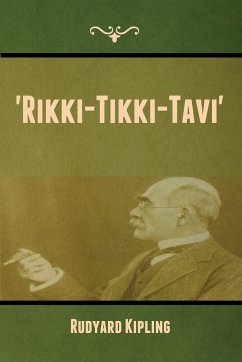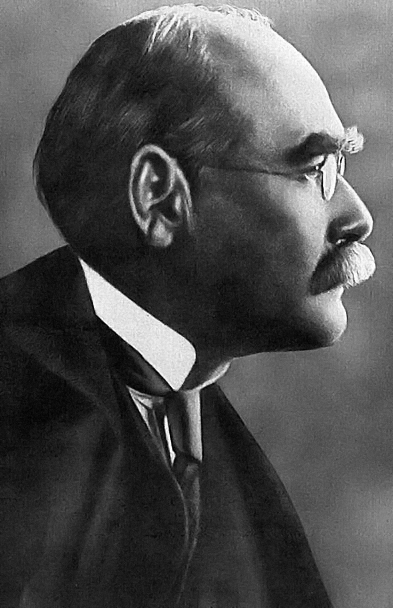"Rikki-Tikki-Tavi" is a short story in the 1894 anthology The Jungle Book by Rudyard Kipling about adventures of a valiant young Indian grey mongoose. It has often been anthologised, and has been published several times as a short book. The Book 5 of Panchatantra, an ancient Indian collection, includes the mongoose and snake story, an inspiration for the "Rikki-Tikki-Tavi" story. The story follows the experiences of a mongoose named Rikki-Tikki-Tavi (from his chattering vocalizations) after he becomes the pet of an English family residing in India. He becomes friendly with some of the other creatures inhabiting the garden and is warned of the cobras Nag and Nagaina, who are angered by the human family's presence on their territory. Accordingly, Nag enters the house's bathroom before dawn to kill the humans and make Rikki leave, so that their babies will grow up in a safe place. Rikki attacks Nag from behind in the bathroom. The ensuing struggle awakens the family, and the father kills Nag with a shotgun blast while Rikki bites down on the hood of the struggling male cobra. The grieving female snake Nagaina attempts revenge against the humans, cornering them as they have breakfast on an outdoor veranda. She is distracted by a female vulture, while Rikki destroys the cobra's unhatched brood of eggs, except for one. He carries it to where Nagaina is threatening to bite little Teddy, while his parents watch helplessly. Nagaina recovers her egg but is pursued by Rikki away from the house to the cobra's underground nest, where an unseen final battle takes place. Rikki emerges triumphant from the hole, declaring Nagaina dead. With the immediate threat defeated, Rikki dedicates his life to guarding the garden, resulting in no snake even daring to enter it. (The text does not say whether or not Rikki has destroyed the last egg.) Director Alexandra Snezhko-Blotskaya shot an animated short film of the story titled ¿¿¿¿¿-¿¿¿¿¿-¿¿¿¿ (Rikki-Tikki-Tavi) in 1965 in the Soviet Union, at the film studio Soyuzmultfilm. Ten years later, Chuck Jones adapted it for a half-hour television special in the United States. Aleksandr Zguridi and Nana Kldiashvili directed a live-action feature film entitled Rikki-Tikki-Tavi four years later. In the anime television series, Jungle Book Sh¿nen Mowgli, Rikki-Tikki-Tavi is a supporting character who is the pet of an Indian family and is a heroic defender of them. In the CGI series The Jungle Book (TV series), Rikki-Tikki-Tavi is an occasional character who is a friend of Mowgli. (wikipedia.org)

